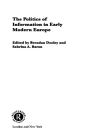In this panoramic survey of urbanization in the American South from its beginnings in the colonial period through the 'Sunbelt’ era of today, Lawrence Larsen examines both the ways in which southern urbanization has paralleled that of other regions and the distinctive marks of 'southernness’ in the historical process.
Larsen is the first historian to show that southern cities developed in 'layers’ spreading ever westward in response to the expanding transportation needs of the Cotton Kingdom. Yet in other respects, southern cities developed in much the same way as cities elsewhere in America, despite the constraints of regional, racial, and agrarian factors. And southern urbanites, far from resisting change, quickly seized upon technological innovations- most recently air conditioning- to improve the quality of urban life.
Treating urbanization as an independent variable without an ideological foundation, Larsen demonstrates that focusing on the introduction of certain city services, such as sewerage and professional fire departments, enables the historian to determine points of urban progress.
Larsen’s landmark study provides a new perspective not only on a much ignored aspect of the history of the South but also on the relationship of the distinctive cities of the Old South to the new concept of the Sunbelt city. Carrying his story down to the present, he concludes that southern cities have gained parity with others throughout America. This important work will be of value to all students of the South as well as to urban historians.
O autorze
Lawrence H. Larsen is professor of history at the University of Missouri–Kansas City. He is the author of The Urban West at the End of the Frontier and The Rise of the Urban South.












